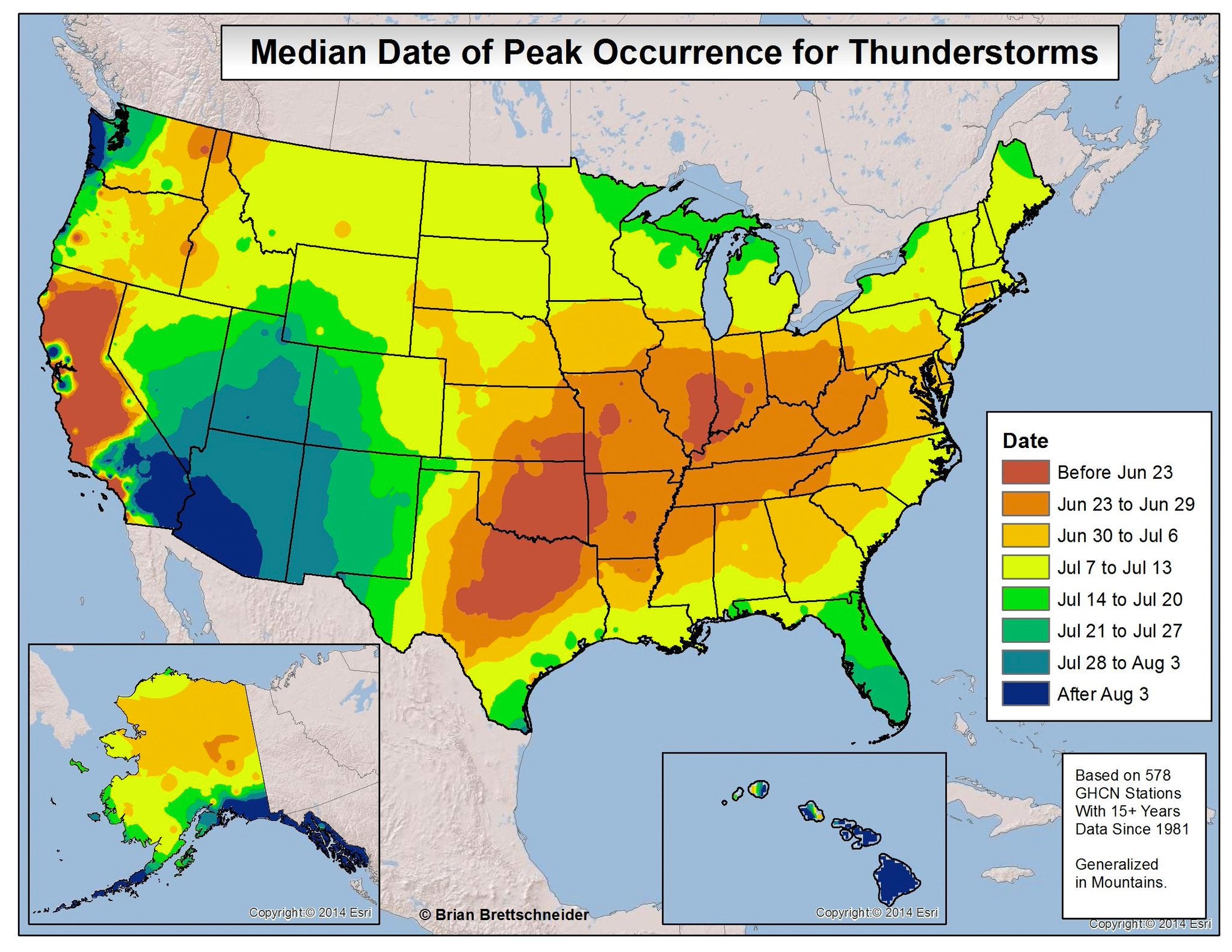Published: July 12,2016
 Median date of peak thunderstorm occurrence for thunderstorms
Median date of peak thunderstorm occurrence for thunderstormsJuly 7-13 is when thunderstorm activity peaks for large swaths of the Northeast, upper Midwest, northern Plains and northern Rockies.
According to Alaskan climatologist Brian Brettschneider, the exact dates for some select cities in these regions are as follows:
- Rapid City, South Dakota: July 7
- New York City (La Guardia Airport): July 8
- Boston: July 8
- Milwaukee: July 8
- Detroit: July 8
- Great Falls, Montana: July 9
- Glasgow, Montana: July 9
- Denver: July 10
- Burlington, Vermont: July 10
- Albany, New York: July 11
- Bismarck, North Dakota: July 12
- Cheyenne, Wyoming: July 13
- Green Bay, Wisconsin: July 13
(MORE: July is the Warmest Time of the Year for Much of the U.S.)
Other areas that see peak thunderstorm activity July 7-13 include Southeast coastal areas and the Gulf Coast. New Orleans, for example, peaks July 12, while Savannah, Georgia, peaks July 11.
Portions of the southern Plains peak before June 23 since they receive the bulk of their thunderstorms in April and May during the heart of severe weather season. In late spring and early summer, warm, humid air masses interact with Gulf of Mexico moisture drawn up from the south, hence the earlier peak in the southern Plains.
The Desert Southwest sees the latest peak in thunderstorm activity, not occurring until late July or early August. The reason for this is the Southwest summer monsoon. The monsoon brings increased moisture to the area, providing fuel for thunderstorm development in a typically dry area for most of the year.
(MORE: Five Things to Look for During the Southwest Summer Monsoon)
No comments:
Post a Comment